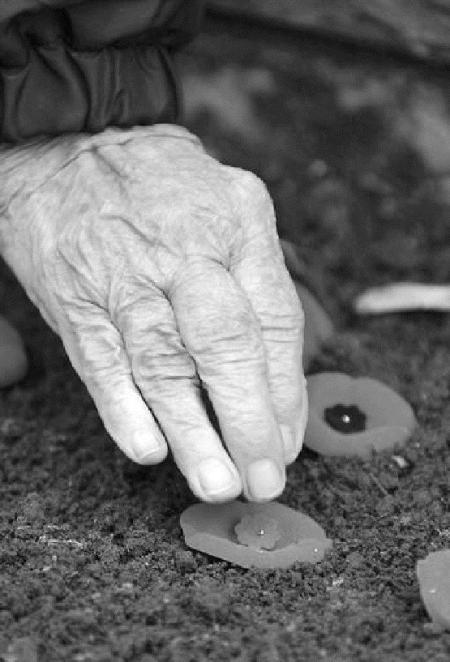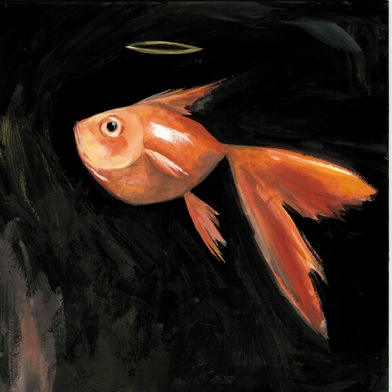Main

As an early reviewer, I received ‘The Creation of Eve’ a historical novel by Lynn Cullen, based on the true but little-known story of Sofonisba Anguissola, the first renowned female artist of the Renaissance. Sofonisba studied under Michelangelo and was asked by the King of Spain (Felipe) to become part of the Queen’s (Elisabeth) court. Through Sofi’s eyes (and Lynn’s impeccable writing) we are transported to the Spanish court with all its intrigue, multi-layered relationships and rules. Another key theme of the novel is the treatment and place of women during this time period.
Through Sofi’s eyes, we are able to gain access to the interior life of the third wife of Felipe: the young, Elisabeth. At fourteen years old, she is expected to satisfy the King and produce an heir, all as part of deal for peace between France and Spain. The young Queen Elisabeth wants desperately to please her mother (Catherine de Medici) and the women of the Spanish court, but her youth, naïveté and impulsive nature set her on a collision course with the King.
Lynn Cullen’s novel is well researched and written. She has an appreciation and understanding of painters and painting techniques. I could picture many of the scenes described as vignettes in an exhibition. Sofi is the perfect portrait artist, she remains in the background, allowing her main subject, the Queen, and court life, to come into clear focus.
If you enjoy historical fiction and want to learn more about the Spanish Court during this time period, I highly recommend The Creation of Eve.

Written in 1998, the Incomplete Manifesto is an articulation of statements exemplifying Bruce Mau’s beliefs, strategies and motivations.
1. Allow events to change you.
You have to be willing to grow. Growth is different from something that happens to you. You produce it. You live it. The prerequisites for growth: the openness to experience events and the willingness to be changed by them.
2. Forget about good.
Good is a known quantity. Good is what we all agree on. Growth is not necessarily good. Growth is an exploration of unlit recesses that may or may not yield to our research. As long as you stick to good you’ll never have real growth.
3. Process is more important than outcome.
When the outcome drives the process we will only ever go to where we’ve already been. If process drives outcome we may not know where we’re going, but we will know we want to be there.
4. Love your experiments (as you would an ugly child).
Joy is the engine of growth. Exploit the liberty in casting your work as beautiful experiments, iterations, attempts, trials, and errors. Take the long view and allow yourself the fun of failure every day.
5. Go deep.
The deeper you go the more likely you will discover something of value.
6. Capture accidents.
The wrong answer is the right answer in search of a different question. Collect wrong answers as part of the process. Ask different questions.
7. Study.
A studio is a place of study. Use the necessity of production as an excuse to study. Everyone will benefit.
8. Drift.
Allow yourself to wander aimlessly. Explore adjacencies. Lack judgment. Postpone criticism.
9. Begin anywhere.
John Cage tells us that not knowing where to begin is a common form of paralysis. His advice: begin anywhere.
10. Everyone is a leader.
Growth happens. Whenever it does, allow it to emerge. Learn to follow when it makes sense. Let anyone lead.
11. Harvest ideas.
Edit applications. Ideas need a dynamic, fluid, generous environment to sustain life. Applications, on the other hand, benefit from critical rigor. Produce a high ratio of ideas to applications.
12. Keep moving.
The market and its operations have a tendency to reinforce success. Resist it. Allow failure and migration to be part of your practice.
13. Slow down.
Desynchronize from standard time frames and surprising opportunities may present themselves.
14. Don’t be cool.
Cool is conservative fear dressed in black. Free yourself from limits of this sort.
15. Ask stupid questions.
Growth is fueled by desire and innocence. Assess the answer, not the question. Imagine learning throughout your life at the rate of an infant.
16. Collaborate.
The space between people working together is filled with conflict, friction, strife, exhilaration, delight, and vast creative potential.
17. ____________________.
Intentionally left blank. Allow space for the ideas you haven’t had yet, and for the ideas of others.
18. Stay up late.
Strange things happen when you’ve gone too far, been up too long, worked too hard, and you’re separated from the rest of the world.
19. Work the metaphor.
Every object has the capacity to stand for something other than what is apparent. Work on what it stands for.
20. Be careful to take risks.
Time is genetic. Today is the child of yesterday and the parent of tomorrow. The work you produce today will create your future.
21. Repeat yourself.
If you like it, do it again. If you don’t like it, do it again.
22. Make your own tools.
Hybridize your tools in order to build unique things. Even simple tools that are your own can yield entirely new avenues of exploration. Remember, tools amplify our capacities, so even a small tool can make a big difference.
23. Stand on someone’s shoulders.
You can travel farther carried on the accomplishments of those who came before you. And the view is so much better.
24. Avoid software.
The problem with software is that everyone has it.
25. Don’t clean your desk.
You might find something in the morning that you can’t see tonight.
26. Don’t enter awards competitions.
Just don’t. It’s not good for you.
27. Read only left-hand pages.
Marshall McLuhan did this. By decreasing the amount of information, we leave room for what he called our “noodle.”
28. Make new words.
Expand the lexicon. The new conditions demand a new way of thinking. The thinking demands new forms of expression. The expression generates new conditions.
29. Think with your mind.
Forget technology. Creativity is not device-dependent.
30. Organization = Liberty.
Real innovation in design, or any other field, happens in context. That context is usually some form of cooperatively managed enterprise. Frank Gehry, for instance, is only able to realize Bilbao because his studio can deliver it on budget. The myth of a split between “creatives” and “suits” is what Leonard Cohen calls a ‘charming artifact of the past.’
31. Don’t borrow money.
Once again, Frank Gehry’s advice. By maintaining financial control, we maintain creative control. It’s not exactly rocket science, but it’s surprising how hard it is to maintain this discipline, and how many have failed.
32. Listen carefully.
Every collaborator who enters our orbit brings with him or her a world more strange and complex than any we could ever hope to imagine. By listening to the details and the subtlety of their needs, desires, or ambitions, we fold their world onto our own. Neither party will ever be the same.
33. Take field trips.
The bandwidth of the world is greater than that of your TV set, or the Internet, or even a totally immersive, interactive, dynamically rendered, object-oriented, real-time, computer graphic-simulated environment.
34. Make mistakes faster.
This isn’t my idea — I borrowed it. I think it belongs to Andy Grove.
35. Imitate.
Don’t be shy about it. Try to get as close as you can. You’ll never get all the way, and the separation might be truly remarkable. We have only to look to Richard Hamilton and his version of Marcel Duchamp’s large glass to see how rich, discredited, and underused imitation is as a technique.
36. Scat.
When you forget the words, do what Ella did: make up something else … but not words.
37. Break it, stretch it, bend it, crush it, crack it, fold it.
38. Explore the other edge.
Great liberty exists when we avoid trying to run with the technological pack. We can’t find the leading edge because it’s trampled underfoot. Try using old-tech equipment made obsolete by an economic cycle but still rich with potential.
39. Coffee breaks, cab rides, green rooms.
Real growth often happens outside of where we intend it to, in the interstitial spaces — what Dr. Seuss calls “the waiting place.” Hans Ulrich Obrist once organized a science and art conference with all of the infrastructure of a conference — the parties, chats, lunches, airport arrivals — but with no actual conference. Apparently it was hugely successful and spawned many ongoing collaborations.
40. Avoid fields.
Jump fences. Disciplinary boundaries and regulatory regimes are attempts to control the wilding of creative life. They are often understandable efforts to order what are manifold, complex, evolutionary processes. Our job is to jump the fences and cross the fields.
41. Laugh.
People visiting the studio often comment on how much we laugh. Since I’ve become aware of this, I use it as a barometer of how comfortably we are expressing ourselves.
42. Remember.
Growth is only possible as a product of history. Without memory, innovation is merely novelty. History gives growth a direction. But a memory is never perfect. Every memory is a degraded or composite image of a previous moment or event. That’s what makes us aware of its quality as a past and not a present. It means that every memory is new, a partial construct different from its source, and, as such, a potential for growth itself.
43. Power to the people.
Play can only happen when people feel they have control over their lives. We can’t be free agents if we’re not free.

For 25 years, Leadership Excellence magazine has published the best and latest thinking on leadership. Again this year, the magazine has ranked the top thought leaders in management and leadership. Go here: for their Excellence 100 list.
Leaders, according to the survey, possess a rare combination of traits and abilities. Here are the eight criteria:
- Preparation: academic and professional.
- Character: values, ethics, beliefs, purpose, mission, integrity, walk the talk.
- Principles: big message, point of view, tenets, main points.
- Personality: charisma, style, originality, authenticity, one of a kind.
- Performance: inspiring action, real-world performance, work ethic.
- Experience: beyond local and regional, more national and international.
- Expression: substance and style in writing, speaking, coaching, consulting, mentoring, training, or teaching.
- Influence: difference, results, change, transformation.

Business Week recently published a TIP SHEET that highlights the 20 bad habits that hold us back in the workplace. The list was created by Marshall Goldsmith, an executive coach.
- Winning Too Much The need to win at all costs and in all situations—when it matters, when it doesn’t, and when it’s totally beside the point.
- Adding Too Much Value The overwhelming desire to add our two cents to every discussion.
- Passing Judgment The need to rate others and impose our standards on them.
- Making Destructive Comments The needless sarcasms and cutting remarks that we think make us sound sharp and witty.
- Starting with “No,” “But,” or “However” The overuse of these qualifiers, which secretly say to everyone, “I’m right. You’re wrong.”
- Telling the World How Smart We Are The need to show people we’re smarter than they think we are.
- Speaking When Angry Using emotional volatility as a management tool.
- Negativity The need to share our negative thoughts, even when we weren’t asked.
- Withholding Information The refusal to share information in order to maintain an advantage over others.
- Failing to Give Proper Recognition The inability to praise and reward.
- Claiming Credit We Don’t Deserve The most annoying way to overestimate our contribution to any success.
- Making Excuses The need to reposition our annoying behavior as a permanent fixture so people excuse us for it.
- strong>Clinging to the Past The need to deflect blame away from ourselves and onto events and people from our past; a subset of blaming everyone else.
- Playing Favorites Failing to see that we are treating someone unfairly.
- Refusing to Express Regret The inability to take responsibility for our actions, admit we’re wrong, or recognize how our actions affect others.
- Not Listening The most passive-aggressive form of disrespect for colleagues.
- Failing to Express Gratitude The most basic form of bad manners.
- Punishing the Messenger The misguided need to attack the innocent, who are usually only trying to protect us.
- Passing the Buck The need to blame everyone but ourselves.
- An Excessive Need to Be “Me” Exalting our faults as virtues simply because they exemplify who we are.

One needs to be susceptible to spontaneous laughter, about everything and everybody, especially oneself. Even in the depths of sorrow, one must laugh. Joy and sorrow are not antithetical; they are complimentary. All of life is at once essentially tragic and essentially humorous.
Quote - Robert K. Greenleaf, Purpose and Laughter

The Observer’s literary editor Robert McCrum stood down this month after more than 10 years in the job. And what a tumultuous 10 years. When he started it was a world of ‘cigarettes, coffee and strong drink’. But that has all changed - new writers, big money, the internet, lucrative prizes and literary festivals have all helped revolutionise the books world. Here he charts the changes in 10 short chapters - and wonders if an ‘iPod moment’ is imminent.
Published online on Sunday, May 25 at the Guardian Unlimited. The ten short chapters are:
- Chapter 1: New Blood: Zadie Smith
- Chapter 2: Amazon
- Chapter 3: JK Rowling
- Chapter 4: The Corrections
- Chapter 5: Festivals
- Chapter 6: Prizes
- Chapter 7: Ian Mcewan
- Chapter 8 Blogs Vs Reviewing
- Chapter 9: Eats, Shoots & Leaves
- Chapter 10: The Kindle
You may also want also spend some time exploring the Guardian’s companion piece: A decade of books.

For the complete article by Ben Macintyre go here.
In our Wiki-world, first-hand knowledge seems unnecessary and the story more important
Mrs Mortimer’s odyssey was truly remarkable - between 1849 and 1854, she published three volumes of travel writing, covering Europe, Asia, Africa and the Americas, each larded with her own special brand of disdain. The Portuguese “the clumsiest people in Europe”; the Welsh “not very clean”; the Zulus “a miserable race”.
Favell Lee Mortimer held her Victorian readers spellbound with her colourful descriptions of foreign lands and their benighted inhabitants. But what made Mrs Mortimer’s attitude to foreign countries even more extraordinary was that she had never been to any of them. Mrs Mortimer wrote her entire travelogue from her drawing room in England. Apart from a childhood trip to Paris and Brussels, she never set foot outside this country and had no wish to - already convinced, as she was, that abroad was full of all those clumsy, unhygienic and unhappy foreigners.
Mrs Mortimer’s spiritual heir is the former Lonely Planet writer Thomas Kohnstamm, who cheerfully admitted this week that he had written a section of the Colombia guide without having visited the country. Bogus travel writing has a long and inglorious history, but in another way Kohnstamm is representative of a wider and more modern malaise: writers reviewing books they have not read, politicians claiming to have braved dangers they never faced, novelists depicting places they have not seen, memoirists describing a past that never happened, journalists making up stories about people that never existed, and, most pernicious of all, writers simply cutting and pasting words they have not written.
In most cases this is not active deception, but rather a strange cultural blurring of truth and fiction, the confusion of first-hand knowledge with second-hand electronic cuttings, the elision of personal experience with a reality borrowed or imagined from elsewhere.
This is the victory of information over experience. In Wiki-world, where so much semi-reliable information is available at the push of a button, there is no need to see something first-hand in order to be able to describe it with conviction and authority. A comparison of Paris guidebooks reveals entire chunks of identical text for some tourist spots: why actually visit somewhere to find out what it is like when one can merely paste together a version of reality?

By Rabih Alameddine, from the LA Times.
All living languages are promiscuous. We promiscuous speakers shamelessly shoplift words, plucking bons mots and phrases from any tempting language. We wear these words when we wish to be more formal, more elegant, more mysterious, worldly, precise, vague. They flash on our fingers like gaudy rings, adorn our hair, warm our necks like rich foreign scarves. They become our favorite trousers, the shoes we cannot live without, our way of describing illness to our doctors, declaring love to our lovers, formulating policies, doing business. We believe we own them and are frequently astonished to discover their original roots in another language.
English, a mongrel from the start, greedily helps itself to foreign words more than any other. The Oxford English Dictionary lists more than 500,000 of them, whereas German has about 185,000 and French fewer than 100,000, according to “The Story of English” by Robert McCrum, William Cran and Robert MacNeil. Give us your tired, your poor, your fabulous words yearning to be free. We’ll take them.

The American Book Review has made their list of the 100 best last lines from novels available online. Who do you think should have won?

Kids lie early, often, and for all sorts of reasons—to avoid punishment, to bond with friends, to gain a sense of control. But now there’s a singular theory for one way this habit develops: They are just copying their parents.
In the last few years, a handful of intrepid scholars have decided it’s time to try to understand why kids lie. For a study to assess the extent of teenage dissembling, Dr. Nancy Darling, then at Penn State University, recruited a special research team of a dozen undergraduate students, all under the age of 21. Using gift certificates for free CDs as bait, Darling’s Mod Squad persuaded high-school students to spend a few hours with them in the local pizzeria.
Each student was handed a deck of 36 cards, and each card in this deck listed a topic teens sometimes lie about to their parents. Over a slice and a Coke, the teen and two researchers worked through the deck, learning what things the kid was lying to his parents about, and why.
“They began the interviews saying that parents give you everything and yes, you should tell them everything,” Darling observes. By the end of the interview, the kids saw for the first time how much they were lying and how many of the family’s rules they had broken. Darling says 98 percent of the teens reported lying to their parents.
Out of the 36 topics, the average teen was lying to his parents about twelve of them. The teens lied about what they spent their allowances on, and whether they’d started dating, and what clothes they put on away from the house. They lied about what movie they went to, and whom they went with. They lied about alcohol and drug use, and they lied about whether they were hanging out with friends their parents disapproved of. They lied about how they spent their afternoons while their parents were at work. They lied about whether chaperones were in attendance at a party or whether they rode in cars driven by drunken teens.
Being an honors student didn’t change these numbers by much; nor did being an overscheduled kid. No kid, apparently, was too busy to break a few rules. And lest you wonder if these numbers apply only to teens in State College, Pennsylvania, the teens in Darling’s sample were compared to national averages on a bevy of statistics, from academics to extracurriculars. “We had a very normal, representative sample,” Darling says.
For two decades, parents have rated “honesty” as the trait they most wanted in their children. Other traits, such as confidence or good judgment, don’t even come close. On paper, the kids are getting this message. In surveys, 98 percent said that trust and honesty were essential in a personal relationship. Depending on their ages, 96 to 98 percent said lying is morally wrong.
So when do the 98 percent who think lying is wrong become the 98 percent who lie?
It starts very young. Indeed, bright kids—those who do better on other academic indicators—are able to start lying at 2 or 3. “Lying is related to intelligence,” explains Dr. Victoria Talwar, an assistant professor at Montreal’s McGill University and a leading expert on children’s lying behavior.
Although we think of truthfulness as a young child’s paramount virtue, it turns out that lying is the more advanced skill. A child who is going to lie must recognize the truth, intellectually conceive of an alternate reality, and be able to convincingly sell that new reality to someone else. Therefore, lying demands both advanced cognitive development and social skills that honesty simply doesn’t require. “It’s a developmental milestone,” Talwar has concluded.
This puts parents in the position of being either damned or blessed, depending on how they choose to look at it. If your 4-year-old is a good liar, it’s a strong sign she’s got brains. And it’s the smart, savvy kid who’s most at risk of becoming a habitual liar.
Continue reading the New York Magazine article by Po Bronson: here.

Researchers are revealing hidden complexities behind the simple act of kissing, which relays powerful messages to your brain, body and partner, Chip Walter, Scientific American
When passion takes a grip, a kiss locks two humans together in an exchange of scents, tastes, textures, secrets and emotions. We kiss furtively, lasciviously, gently, shyly, hungrily and exuberantly. We kiss in broad daylight and in the dead of night. We give ceremonial kisses, affectionate kisses, Hollywood air kisses, kisses of death and, at least in fairytales, pecks that revive princesses.
Lips may have evolved first for food and later applied themselves to speech, but in kissing they satisfy different kinds of hungers. In the body, a kiss triggers a cascade of neural messages and chemicals that transmit tactile sensations, sexual excitement, feelings of closeness, motivation and even euphoria.
Not all the messages are internal. After all, kissing is a communal affair. The fusion of two bodies dispatches communiqués to your partner as powerful as the data you stream to yourself. Kisses can convey important information about the status and future of a relationship. So much, in fact, that, according to recent research, if a first kiss goes bad, it can stop an otherwise promising relationship dead in its tracks.

The complete essay can be found online at poetrymagazine: The Taste of Silence
Ours does not promise to go down in literary history as a great age of religious poetry. Yet if contemporary poetry is not often religious, it is still intensely, covertly metaphysical. Human nature, it seems, compels us to keep asking about the first things, even if we no longer accept the same answers that our ancestors did, or even the same kind of answers. The more widely you read, in fact, the clearer it becomes that our poetry has a distinctive metaphysics, a set of principles or intuitions held in common by poets as different as Seamus Heaney, Charles Simic, and Billy Collins. This metaphysical sensibility, I think, is what will give our period a retrospective unity, when readers of the future come to survey what looks to us like chaos.

Leave out adverbs, skip description, and keep the writer out of sight.
By Elizabeth A. Brown
When my teenage son picked up Elmore Leonard’s 10 Rules of Good Writing, it fell open to Rule 3: “Never use a verb other than ‘said’ to carry dialogue.”
“I wish my teachers could read this,” my son said. “They tell us not to use ‘said.’ They think other words make us sound better, like we have a bigger vocabulary.”
Which is precisely Elmore Leonard’s point: Good writing is not about the writer (and the way he sounds or the size of her vocabulary), but about the story.
The writer must remain invisible.

Advice from Jeff Vandermeer’s Ecstatic Days Blog.
Now that I don’t have a full-time job and am approaching the age of forty, two things have happened: (1) I can put more of the full force of my attention into a novel or short story more intensely over a short period of time and (2) I’m much more relaxed and as a result my rough drafts tend to be more complete than in the past; I still do a ton of rewriting, revision, and line editing, but I find that more of the initial vision in my head is in the draft right away.
Do you think his advice is worth a try?

Complete article on The Nation Online:
Disney likes to think of the Princesses as role models, but what a sorry bunch of wusses they are. Typically, they spend much of their time in captivity or a coma, waking up only when a Prince comes along and kisses them. The most striking exception is Mulan, who dresses as a boy to fight in the army, but—like the other Princess of color, Pocahontas—she lacks full Princess status and does not warrant a line of tiaras and gowns. Otherwise the Princesses have no ambitions and no marketable skills, although both Snow White and Cinderella are good at housecleaning.

If celebrities can tell us what books we should read, why shouldn’t they tell us who will make the best president of the United States?
In Iowa on Jan. 3, the battle of the celebrities, Barbra vs. Oprah, will decide the future of civilization — or, at the very least, help determine who might win the Democratic presidential nomination.
The ignorant sneer at the Iowa caucuses, since they involve only a handful of the citizens in a state that has fewer than three million residents and is known to foreigners mainly as the place that isn’t Idaho. But political soothsayers agree that Iowa counts. In presidential politics, Iowa is destiny. A good showing at the start of the electoral cycle creates momentum — “the big Mo,” as George H.W. Bush once called it. Over the years, Iowa has breathed fresh energy into several limping candidacies, including George McGovern’s, Jimmy Carter’s and John Kerry’s.
“Celebrity,” said John Updike, “is a mask that eats into the face. As soon as one is aware of being ‘somebody,’ to be watched and listened to with extra interest, input ceases, and the performer goes blind and deaf.”
Updike makes celebrity sound horrible, but much of the world craves it, until they get it — and then, with mixed emotions, they cling to it. A great comedian, Fred Allen, once remarked that “A celebrity is a person who works hard all his life to become well known, then wears dark glasses to avoid being recognized.”
But these individuals, while self-maimed by the lust for money and fame, are the mythic rulers of the Earth. They own everyone’s imagination. They can sell anything from perfume to T-shirts. Their status is special and they know it. They expect special treatment.
From Robert Fulford’s article, National Post.

Read the full article here.
1 Blowing your nose into a handkerchief in Japan
The Japanese call snot hanakuso - literally “nose shit” - and find the idea of walking around with a cloth full of it disgusting.
2 Getting your host’s name the wrong way round in China
In the Far East name order is reversed, with the surname first, then a middle, generational name, then a given name. So calling Mr Li Wong Chee of Beijing “Mr Chee” would be like calling Mr John William Smith of London “Mr John”.
3 Confusing a Canadian with an American
Or a Paraguayan with a Uruguayan, an Englishman with an Irishman or an Australian with a Kiwi. Neighbours are always the twitchiest about each other.
4 Keeping your shoes on in a temple or home in the Far East
Take them off at the door, everywhere from Burma to Japan. It’s wise to be wearing clean socks - and do remember where you put your shoes. It’s an awful bore to get back to the hotel and realise you’re wearing Mr Yamazaki’s brogues.
5 Looking at your feet when drinking a toast in Scandinavia
Right across Northern Europe, you should always meet your host’s eye when saying “Skål!” or “Prost!” And the drink must then go down in one. If you fail to do this, the Germans say, seven years of bad sex will follow.
6 Teasing an Australian about how useless their national team is
Sport is the one sacred activity Down Under.
7 Giving a bottle of malt whisky in a pigskin bottle holder to an Arab host
If your Muslim host drinks, he certainly doesn’t do so publicly, so drawing attention to his love of Glenfiddich is not the best idea. Like the dog, the pig is unclean in Arab countries, so pigskin only adds to the offence.
8 Being on time for an Argentinian dinner party
Dinner in Latin America is always late, but you should arrive later. Turning up on time isn’t regarded as polite - just greedy.
9 Eating with your left hand in Africa and India
In areas where they routinely eat with their hands, you must use the right one. The left is the “unclean” hand, reserved for a related function a few hours later.
10 Leaving your chopsticks upright in a bowl of rice in China or Japan
Of all chopstick no-nos this is the worst, as it mimics a Japanese funeral rite, when chopsticks and rice are left by the bedside of the newly deceased.

From the American Scholar, an article by Gorman Beauchamp writing about today’s tendency to make amends
for the crimes of history.
My favorite apology so far, however, appeared in a brief Reuters account. “Villagers of the tiny settlement of Nubutautau [Fiji] wept as they apologized to the descendants of a British missionary killed and eaten by their ancestors 136 years ago,” the news agency reported. “The villagers and the relatives of the missionary, the Rev. Thomas Baker, were taking part in a complex ritual intended to lift a curse the locals say has caused an extended run of bad luck.” A cow was slaughtered and kisses given to the 11 relatives of the missionary by the village chief, Ratu Filimoni Nawawabalavu, “a descendant of the chief who cooked the missionary.” No word on whether the curse lifted.

* Because you shouldn’t have to look at your blog like it is a treadmill.
* Because it’s okay to just say what you have to say. If that makes for a long post, fine. Short post, fine. Frequent post, fine. Infrequent post, fine.
* Because it’s okay to not always be enthralled with the sound of your own typing.
* Because sometimes less is more.
* Because only blogging when you feel truly inspired keeps up the integrity of your blog.
* Because they are probably not going to inscribe your stat, link and comment numbers on your tombstone.
* Because for most of us blogging is just a hobby. A way to express yourself and connect with others. You should not have to apologize for lapses in posts. Just take a step back and enjoy life, not everything you do has to be “bloggable”.
* Because if you blog without obligation you will naturally keep your blog around longer, because it won’t be a chore. Plus, just think you will be doing your part to eradicate post pollution. One post at a time…


Are you dreading the holiday season, especially the madness associated with shopping?
Buy Nothing Christmas is not really about refusing to spend a dime over the holiday season. It’s about taking a deep breath and deciding to opt out of the hype‚ the overcrowded malls‚ and the stressful to–do lists. It’s about reminding ourselves to really think about what we are buying‚ why we are buying it‚ and whether we really need it at all.


In Flanders fields the poppies blow
Between the crosses, row on row
That mark our place; and in the sky
The larks, still bravely singing, fly
Scarce heard amid the guns below.
We are the Dead. Short days ago
We lived, felt dawn, saw sunset glow,
Loved and were loved, and now we lie
In Flanders fields.
Take up our quarrel with the foe:
To you from failing hands we throw
The torch; be yours to hold it high.
If ye break faith with us who die
We shall not sleep, though poppies grow
In Flanders fields.
~ John McCrae (1872-1918)

Remembrance Day 2007 - Lest we forget: In depth report from CBC.
During the First World War (1914-1918), more than 600,000 Canadian soldiers volunteered to go overseas. As of November 2007, only one was still alive — John Babcock, 107, who was born on an Ontario farm and now lives in the United States.
These soldiers fought in a series of costly and bloody battles and by the end of the war, more than 69,000 Canadian soldiers had died and 172,000 were wounded.

I discovered Jan Oliver’s artwork while doing an online search on the Chimayo Pilgrimage (New Mexico). She’s written a book ” Paint Your Soul” for the young at heart that I’ve added to my list of must reads.
Her images are open and inviting, full of life and light.
This one is called “Our Lady of Guadalupe” ~

And this one ~ “Wedding at Chimayo”


Am wondering why the New York Times decided to print an article on women and business in the style section? Click on the link below to read the entire article. Why is it that a woman’s ability in the workplace is paired with her fashion sense? And is true as Lisa asserts in the article that women can’t win?
The Feminine Critique ~ By LISA BELKIN, New York Times, November 1 2007.
DON’T get angry. But do take charge. Be nice. But not too nice. Speak up. But don’t seem like you talk too much. Never, ever dress sexy. Make sure to inspire your colleagues — unless you work in Norway, in which case, focus on delegating instead.
Writing about life and work means receiving a steady stream of research on how women in the workplace are viewed differently from men. These are academic and professional studies, not whimsical online polls, and each time I read one I feel deflated. What are women supposed to do with this information? Transform overnight? And if so, into what? How are we supposed to be assertive, but not, at the same time?
“It’s enough to make you dizzy,” said Ilene H. Lang, the president of Catalyst, an organization that studies women in the workplace. “Women are dizzy, men are dizzy, and we still don’t have a simple straightforward answer as to why there just aren’t enough women in positions of leadership.”
Catalyst’s research is often an exploration of why, 30 years after women entered the work force in large numbers, the default mental image of a leader is still male. Most recent is the report titled “Damned if You Do, Doomed if You Don’t,” which surveyed 1,231 senior executives from the United States and Europe. It found that women who act in ways that are consistent with gender stereotypes — defined as focusing “on work relationships” and expressing “concern for other people’s perspectives” — are considered less competent. But if they act in ways that are seen as more “male” — like “act assertively, focus on work task, display ambition” — they are seen as “too tough” and “unfeminine.”
Women can’t win.

If I speak in the tongues of men and of angels, but have not love, I am a noisy gong or a clanging cymbal. And if I have prophetic powers, and understand all mysteries and all knowledge, and if I have all faith, so as to remove mountains, but have not love, I am nothing. If I give away all I have, and if I deliver my body to be burned, but have not love, I gain nothing. Love is patient and kind; love is not jealous or boastful; it is not arrogant or rude. Love does not insist on its own way; it is not irritable or resentful; it does not rejoice at wrong but rejoices in the right. Love bears all things, believes all things, hopes all things, endures all things. Love never ends.

We’re heading out to the verdant island of Kauai next week for a family vacation: Dev, the chicken and me. We’ll be staying at the Grand Hyatt Resort and Spa for a glorious seven days.




We’ve had our fish tank for about a month now and three of the original six fish have disappeared. They were either abducted by aliens or devoured by our bright orange mollie. A quick Google search confirmed our suspicions. Mollies will definitely eat live foods. Translation: anything smaller than our 1 1/2 inch mollie with an easy-going temperament is fair game. Our small tetras didn’t stand a chance.


Do you know someone who would enjoy receiving a missive through the post? Perhaps you’re the one who is tired of e-mail and longs to read a personal, hand-written letter ? Look no further than the letter project. Rick has been writing and sending letters through the post to anyone who asks. Here’s why he writes:
Not so long ago, letters were central to our lives. Through the written word we connected in a special and intimate way. We waited with anticipation for the postman to bring news, encouragement, support, love and caring words from those far away from us. A letter is similar to a chapter in a book, written especially for you. Today, we dash off sentiments using email, cell phones, instant or text messaging. We transmit ideas, yet — in mechanically dispensed and flavorless servings. Letters can be savored, folded up and stashed away in a pocket or handbag to be re-read whenever we wish. A letter connects us with its writer.

Just wanted to introduce y’all to the talented and superfabulous (who knew that you could trade-mark words?) Carollyne. Artist. Web-designer. Entrepreneur. Social Commentator, and dear, dear friend and now blogger. She’s new to the world of blogging, so please, don’t be shy, drop by and say hello. Tell her Xine sent you.

Where’s the man could ease
a heart like a satin gown?
~ Dorothy Parker


I recently discovered the intelligent, fiercely funny and deeply spiritual Rugamuffin Diva while doing research on modern-day iconographers for my WIP.
Here’s Mair in her own words:
“An unsteady disciple whose cheese is falling of her cracker, and worse, that cheese is the processed kind that you ooze out by pressing by your finger against a nozzle on the top of the can. When it falls off its cracker it leaves a mess. Yet, she, like all of us, is made in the image and likeness of God. We are living icons, revealing an aspect of God that is as unique to us as our fingerprints. Be who you are, and be that perfectly well. God loves you.”
Mair is a talented, published author of The Amanda Bell Brown Mysteries, Howard/Simon & Schuster. Murder, Mayhem, and Fine Man coming in February 2008. Death, Deceit, and Some Smooth Jazz coming in April of 2008. And from David C. Cook: Zora and Nicky: A Novel in Black and White coming in March of 2008.
Mair has touched my heart. Her writing is smooth as honey. Blessed to be one of her advance readers for Zora and Nicky, I am falling in love with Mair’s story and its lead characters.
She was recently awarded a Rockin’ Girl Blogger Award, so you know she’s worthy of your visit. So, what are you waiting for? Go spend some time in Mair’s world.

Words are things; and a small drop of ink
Falling like dew upon a thought, produces
That which makes thousands, perhaps millions, think.
~ Lord Byron, poet (1788-1824)

To understand what is;
Imagine what could be, and
Create what will be …

The richest source of family history you could find anywhere in the world is the memory of your parents and your grandparents - memories that will tell you things you never knew or have long since forgotten about yourself … .The giving and the getting, the sense of belonging and contributing to something larger than yourself, to something that began before you were born and will go on after you die, can make it possible for you to accept life in a way that makes you wish the whole world could realize how easy it is to feel as you do, and wonder why they don’t.
~ Alex Haley

Each Easter Sunday afternoon, when my grandmother was a little girl in Smyrna, she accompanied her mother to a special service held at the local cemetery in the Greek Quarter. The priest, having celebrated the Resurrection of Christ at the midnight liturgy with the living, would conduct an abbreviated liturgy in the cemetery chapel the following day.
At the conclusion of the service, the priest accompanied by a procession of acolytes and cantors would travel through the cemetery ecstatically singing Christos Anesti. Stopping by graves where family members stood, the priest proclaimed, Christ is risen! And the Greek chorus replied, Alithos Anesti, truly he is risen!
This procession, in a place normally associated with mourning and loss, triumphantly declared that agape not only survives death but transcends it.

Since Mama’s passing, Dev and I have been attending church services infrequently. Normally, we’d be in attendance participating in the Divine Liturgy and staying for the luncheon afterwards. Today, we were conspicuously absent. I have felt my connection to all things Greek become more tenuous …
My father was the storyteller, my mother the historian — the keeper of family secrets and traditions. And I wonder now, with her passing, how many of the traditions I will keep?
Continue reading "On the Presentation of Our Lord at the Temple" »
|









